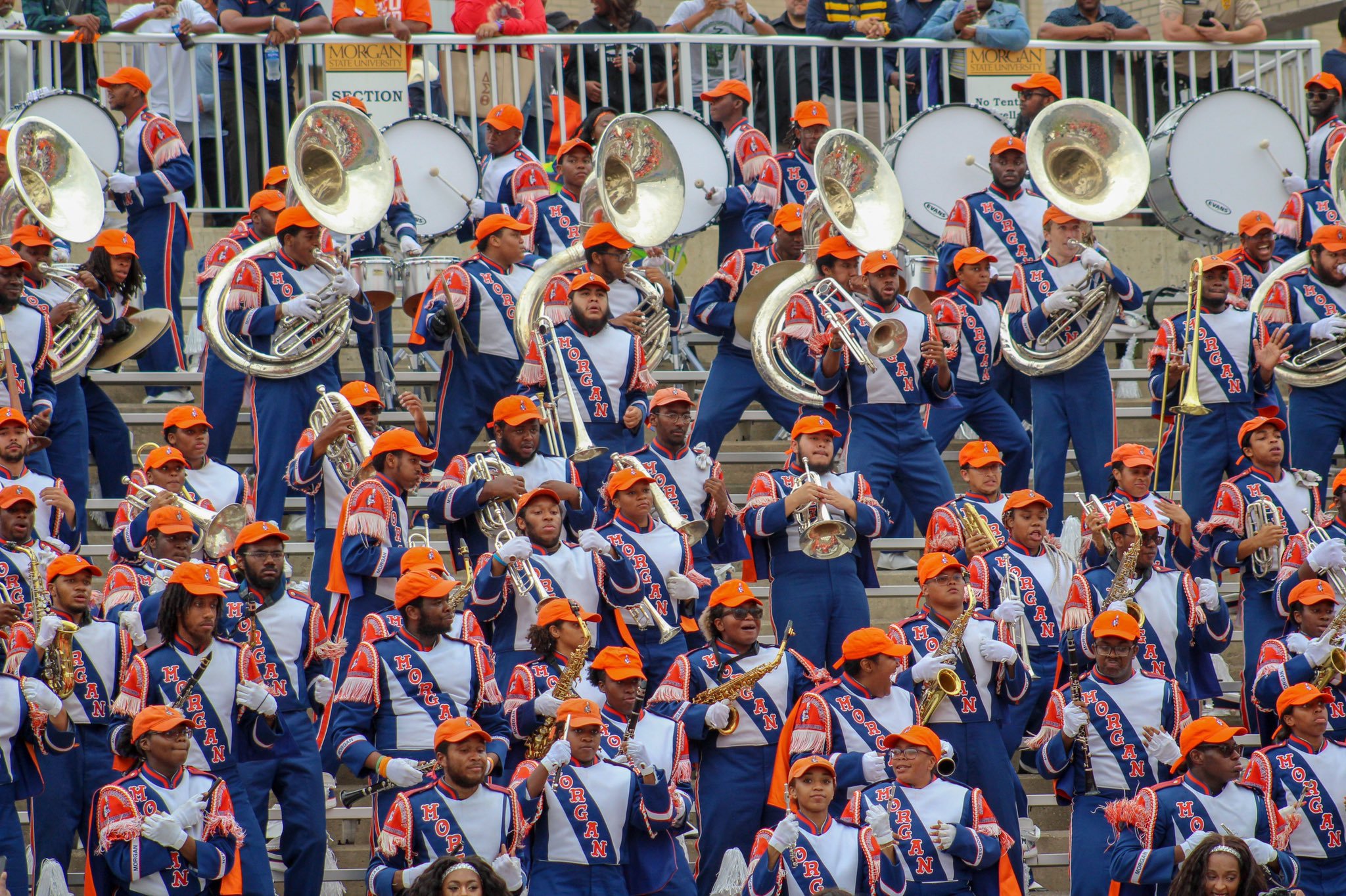Morgan State University became the first HBCU band from Maryland to perform at the Macy’s Thanksgiving parade. That honor marked just another first in a long line of them, for HBCU bands.
In 1955, the Tennessee State University Aristocrat of Bands (A.O.B.) was the first HBCU band to appear on national television with their performance at the Chicago Bears versus Los Angeles Rams NFL game. In 1961, the band made history again, performing at the inauguration of John F. Kennedy. That performance marked the first time an HBCU band performed at a presidential inauguration.

In 1967, the commissioner of the National Football League invited Grambling State’s marching band to perform at the inaugural Super Bowl at the Los Angeles Memorial Coliseum. The game was then known as the AFL-NFL World Championship Game. The halftime show was entitled “Super Sights and Sounds.” Percussionist Freddie Colson played in the halftime show under the instruction of Grambling director Conrad Hutchison, Jr. He said that Grambling “brought soul to the mix.” Colson said that “The only time we stood still was when we played the national anthem.”

In 1965, the Mississippi Valley State College (now Mississippi Valley State University) Marching Band was the first HBCU band to participate in the Rose Bowl Parade. They were also the first HBCU band to be invited back a second time to participate in the parade.

In 1968, just five months after the assassination of Dr. King, the (then) Grambling College Tigers and Baltimore’s undefeated Morgan State Bears played at Yankee Stadium, marking the first time two HBCUs had played in New York City. That also meant the first time Yankee Stadium was host to a “Battle of the Bands.”

The Pelican Bowl was a bowl game held between 1972 and 1975, intended to match the overall champions or top-seeded co-champions from the Mid-Eastern Athletic Conference (MEAC) and the Southwestern Athletic Conference (SWAC) to determine the Black college football national championship. The SWAC won in all three editions of the bowl. The inaugural contest was between Grambling and North Carolina Central, making the two bands the first to compete at a Black college national championship game.









